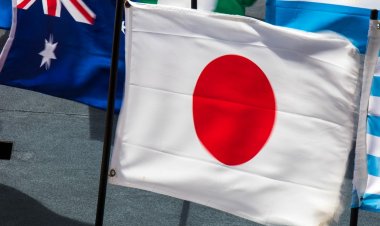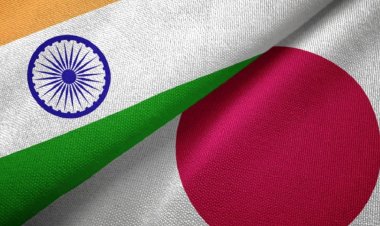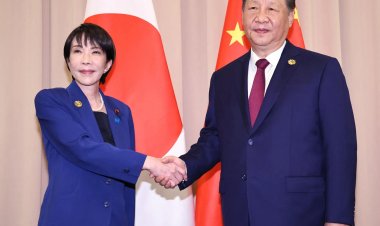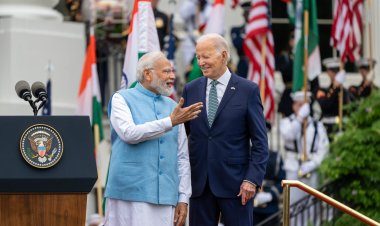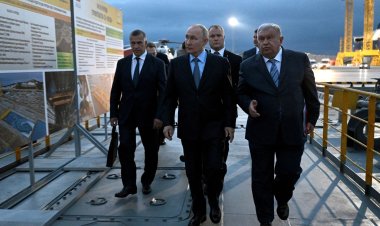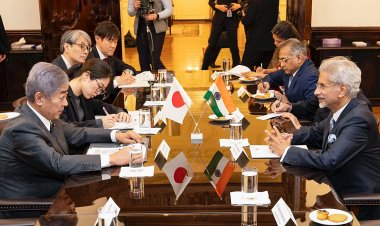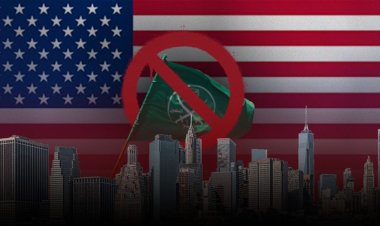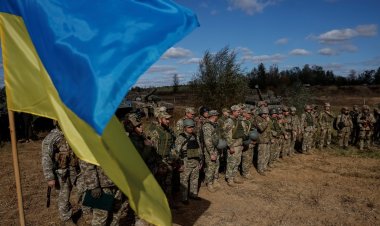China vs. Taiwan : Will there be a War in the near future?
The paper analyses the tensions between Taiwan and China which have increased in recent years over the violations of Taiwan's air space and will there be a war in the near future between China and Taiwan.
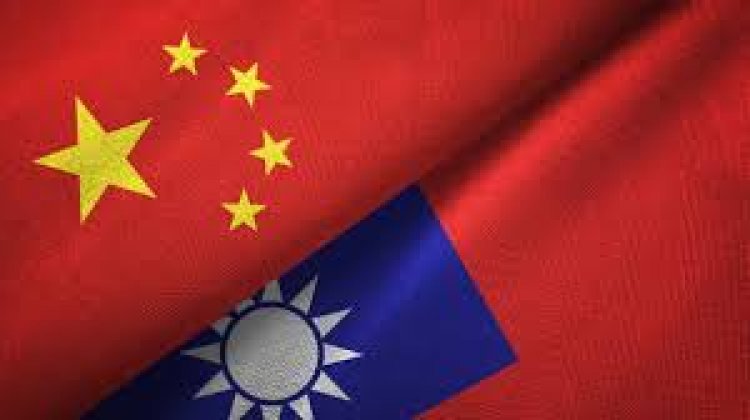
Analysis
By Peder Foss
The brief history of the hostility between China and Taiwan began with the Chinese Civil War. Mao Zedong's communist party won the civil war and took control over China. The other warring part of the civil war was Chiang Kai Shek, and the Kuomintang party fled to Taiwan.
Mainland China views Taiwan as a part of China and has threatened to use its military power to get Taiwan to be a part of mainland China. However, there is a problem for China to make military moves against Taiwan and that is the US-Taiwan Relations Act (1979). As long as Taiwan does not declare itself as an independent country, the US comes to its aid if China attacks Taiwan.
China is increasing its armed forces and what is problematic for Taipei is the increase in the naval and amphibious capabilities of the Chinese navy. The tensions between China and Taiwan have increased in recent years with more and more violations of Taiwan's air space.
China is building up its naval and air capabilities, but can China invade Taiwan? Amphibious operations are complicated and rather dangerous. China needs to neutralize the Taiwanese air defenses and reduce the ground defenses prior to an invasion. It is questionable if the Chinese armed forces have enough amphibious ships to transport troops across the Taiwan Strait and to support these troops if and when the troops have established a bridgehead. China can increase the number of troops by using civilian ferries. However, to utilize civilian ferries, the Chinese army (PLA) must capture functional naval ports, unless the Chinese try to do what the Allied did during the invasion of Normandy i.e., bringing their own naval ports with them. From what I have found, the Chinese have about four divisions trained for amphibious operations. Is that enough? No, it is not enough to establish a bridgehead and launch an offensive inland to capture the rest of Taiwan. The Chinese can use their airborne assets to increase the number of forces, but to use airborne forces requires the Chinese to neutralize the Taiwanese air force, the Taiwanese air defenses, and the Taiwanese ground forces before airborne forces can be deployed. The Russians tried to use airborne forces early in their attack with a disastrous result. Air defense systems are designed to shoot down fighter jets, and these anti-aircraft systems do not have any problems shooting down big transport aircraft.
Only the east coast of Taiwan is suited for amphibious operations, which is beneficial for the Taiwanese defense. A war between China and Taiwan will most likely begin with an air and naval battle. Another option for China is to isolate Taiwan with a naval blockade and force Taiwan to engage the Chinese navy. China needs to consider how other countries in the region will react to a blockade or an assault on Taiwan. The US has air and naval assets in the region and can intervene to defend Taiwan or break the blockade. However, will the United States defend Taiwan? Probably, but it depends on who is the President of the United States at that time. Another difficult question is; if the Americans are saying they will defend Taiwan, but refuse to intervene and defend Ukraine, so why trust the United States? I leave that to the reader. Nonetheless, if China attacks Taiwan, it can cause a war between China and the United States and a war between two nuclear powers is rather concerning. What happens when one side begins losing the war?
The Chinese need to act fast before the US and other countries can react and deploy forces. Any delay will make any military operation against Taiwan harder and more costly for the Chinese military.
It is difficult to predict how other Asian countries will react to war across the Taiwan Strait. I believe they will wait and see what happens. If the war is going well for the Chinese, the other Pacific countries will do nothing. If the war begins showing the same pattern as how the war works for the Russians in Ukraine, they may intervene on the Taiwanese side of the conflict.
Making predictions is difficult, but the Chinese cannot attack Taiwan and expect to be successful now. It will take China about five years to have the capabilities required for a military operation of this scale. But that depends on if the Chinese continue to increase their naval capabilities.
The economic effect of a war between China and Taiwan is difficult to predict. Sanctions will most likely not work against China. Although, I said that about Russia too. The world is heading for a recession now and how the war in Ukraine and the following energy crisis causes a lot of issues. The Taiwanese high-tech sector is a provider of components, especially superconductors. A war will end the production and distribution of superconductors. The war will be fought at one of the world's busiest trade routes. China's zero COVID policy has reduced the economic growth in China, and a war with Taiwan will reduce the economic growth further.
China is closely watching what is going on in Ukraine and how the world reacted to the Russian attack. I strongly believe the Russian government underestimated how the world would react to the war. I do not think the Chinese government makes the same mistake.
It is difficult to predict how a war between China and Taiwan would be fought. It can begin with airplanes shooting at each other and then the war escalates. The Chinese can hide their intentions with an exercise. The Chinese air force has a difficult task to achieve air superiority, suppressing the Taiwanese air defenses, the Taiwanese navy, the Taiwanese command and control, and the Taiwanese ground forces. In addition to all of this, they need to do it fast before the Americans intervene.
The Chinese will most likely launch cyber attacks and sabotage operations prior to any invasion of the Taiwanese islands. The Russians tried to assassinate/capture the Ukrainian government and the military commanders. The Chinese will probably try to do something similar. The invasion fleet will most likely be detected early and if the Taiwanese can attack the fleet and reduce the number of ships, the amphibious operation may be in jeopardy. It will be difficult for China to support the invasion logistically. The invading force needs to be supplied with ammunition, fuel, medical care, spare parts, food/drinking water, and follow-on forces to continue the assaults inland. The first waves of the amphibious forces will most likely suffer a high amount of casualties.
The Taiwanese side of the conflict must do with the equipment they have on day one if the Chinese navy is able to isolate Taiwan. Training and motivation are vital parts of any armed conflict. Those defending their land and homes are usually more motivated than those who are attacking. Another aspect is, it is always easier to defend than to attack. The war in Ukraine has shown how effective modern artillery is, and Taiwan has modern artillery. It has also shown how modern anti-tank weapons effectively destroy tanks and other vehicles. AT-weapons are effective against ships as well. The Taiwanese armed forces are implementing a decentralized command structure, which can be beneficial for the defense of Taiwan.
Taiwan will most likely get intelligence support from the United States prior to any attacks. China cannot hide the concentration of ships and troops prior to an invasion. If China is using its military might to force Taiwan to be under Beijing's control, it can backfire badly, as wars tend to change political and social structures, especially those who commence using military force. There is an expression about wars, “No battle plan survives its first contact with the enemy.” Can it be true in this case? Difficult to say, but what I believe is; Beijing has done a cost-and-benefit analysis of war and if the Chinese government is thinking about China's economy we will probably not see a war, but if the Chinese government is thinking about prestige and expansion we will see a war in about five years from now.
Disclaimer: This paper is the author's individual scholastic contribution and does not necessarily reflect the organization's viewpoint.

